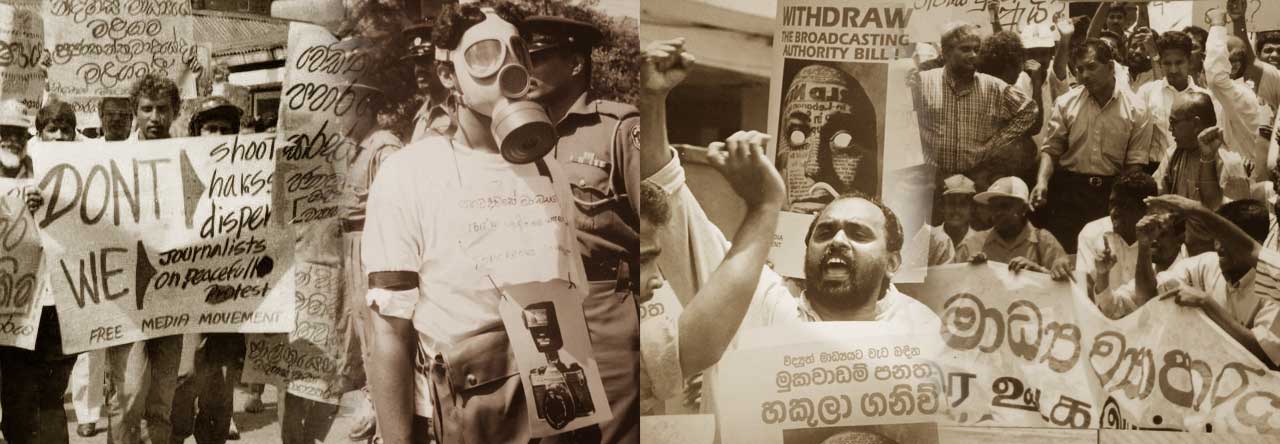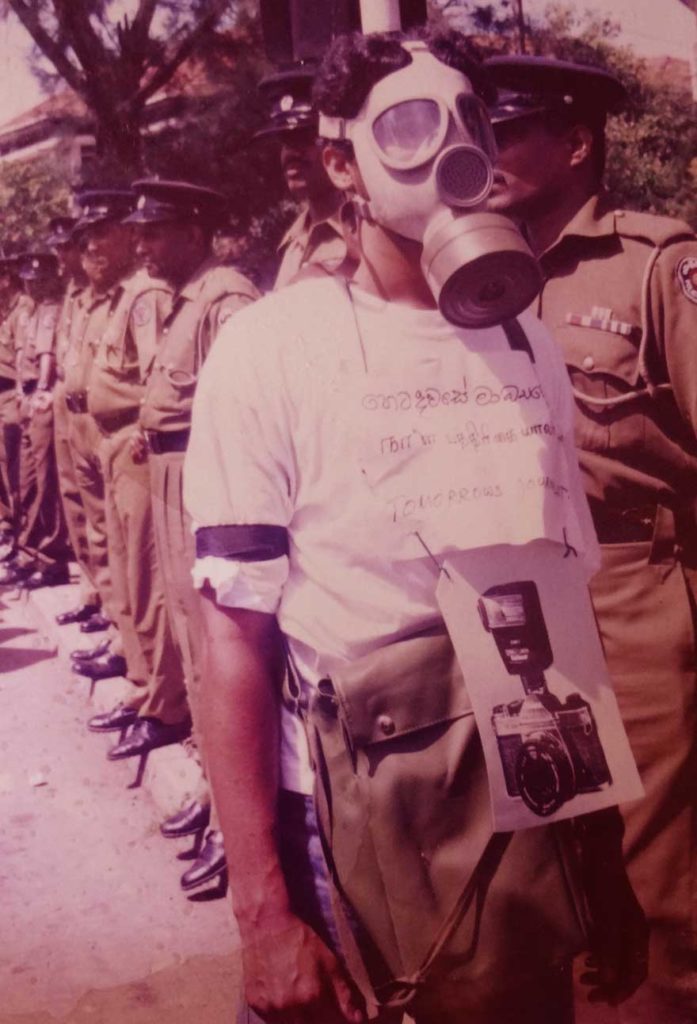The Free Media Movement of Sri Lanka has worked as a small movement for mass communication media freedom since its founding by a mixed group of social and cultural activists, including some journalists, in 1992 amid rapidly worsening conditions of freedom of expression and cultural identity. The FMM soon built up a record of purely voluntary activism (a) defending journalists immediately affected by increasingly harsh political repression and (b) critiquing government policies and regulatory measures. Thus from its early period, the FMM became the principal monitor for Sri Lankan media rights and Freedom Of Expression issues for global solidarity networks such as the IFEX, Committee to Protect Journalists (CPJ) and Article 19.
Today, yet functioning as a pressure group of journalists and rights activists with seasoned provincial networking capacity, the FMM now functions with some reliance on external funding for programmes.
The curtailing of freedom of expression under various new laws aimed at combating insurgency such as the Prevention of Terrorism Act (PTA) were also a focus of the FMM’s work.
The FMM is also among the first of media-related organisations to emphasis best practices and professional standards within the news media itself.
Over more than two decades, the FMM has contributed with ideas and proposals both indirectly and directly on various occasions of public discussion of news media, freedom of expression and cultural identity and rights issues for the purpose of either national policy or institutional or legislative reform in this regard. Some notable instances of FMM submissions and advocacy have been the Report of the R.K.W. Gunasekera Committee on public owned media institutions and a later a Parliamentary Select Committee on Freedom of Expression. Taking these initiatives forward, currently FMM advocate a “ Blue Print for Media Reforms” In preparing this report, the proposals made by and views held by media organisations, university academics, regional journalist/correspondents and civil society activists were taken into consideration.
The FMM is also among the first of media-related organisations to emphasise best practices and professional standards within the news media itself. In this, the FMM has addressed not simply issues of conventional information accuracy best practices but also in relation to critical issues of social discrimination such as gender and ethnicity. Additionally, the Movement has partnered with other core media industry institutions such as the Editors’ Guild and, the Sri Lanka Press Institute in which the FMM is among the founding stakeholders.
The FMM has been an early activist on issues of internet-based communications and the need for a more socially responsible and conflict sensitive use and management of this now rapidly expanding and potentially dominant sector of mass communications.
In 2017, the FMM launched a media policy outlook document as a tentative contribution to a wider discussion toward formulation of public policy and legislative reform.
WHO WE ARE
Free Media Movement
Sri Lanka
The Free Media Movement (FMM) is media freedom watchdog organization of Journalists from Sri Lanka.
FMM evolved out of the standing committee of journalists, which was formed in late 1991. The standing committee was formed by a group of journalists and media personnel as a reaction to the then government of Sri Lanka to introduce a Media Commission.Since then FMM has been active in all areas relating to media freedom, defending the rights of journalists and media people. FMM also has called for reform of legislation, agitating against censorship and intimidation of media personnel and standing for broad principles of democratic and human rights.It also has developed an extensive network of links with other media freedom and human rights groups locally and internationally.



